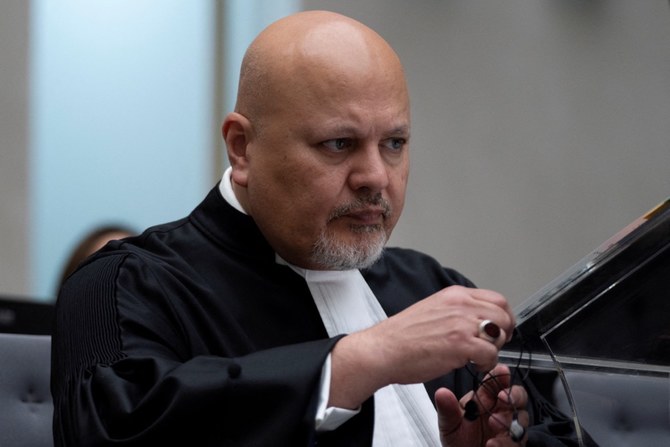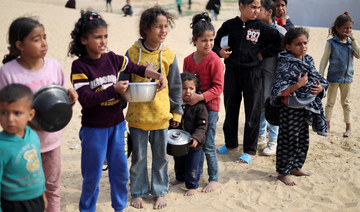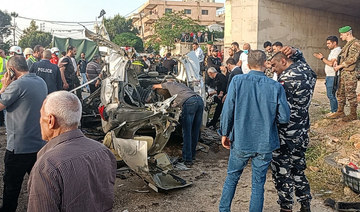NEW YORK CITY: The prosecutor of the International Court of Justice announced during a briefing at the UN Security Council on Thursday that the court has issued four warrants for the arrest of individuals following his investigations of war crimes in Libya.
Karim Khan, the ICC prosecutor, said during the briefing that he had applied for the warrants to be unsealed and that the ICC international judges would decide on these in due course.
Khan said he had also applied for an additional two warrants in the past few weeks.
Though Khan did not name the individuals or the nationalities of those for whom the international arrest warrants were issued, it is believed that they are senior members of former president Muammar Gaddafi’s regime. Gaddafi was ousted from power by the US and European military alliance NATO after a popular and bloody uprising against his decades-long dictatorial rule.
Thousands of innocent Libyans were killed and injured, and many disappeared, during the uprising and the civil war that followed.
The ICC launched an international war crimes investigation in Libya in 2011 after referral by the Security Council and following the Security Council Resolution 1970 that condemned the use of lethal force by Gaddafi and his senior aides against Libyan civilians.
On June, 27 2011, the ICC issued two arrest warrants — one for Saif Al-Islam Gaddafi, the eldest son of the deposed leader, and a second one for Abdullah Al-Senussi, a former colonel in the Libyan air force and head of military intelligence.
Saif Al-Islam Gaddafi was imprisoned for several years by one of the armed groups in Libya but later released.
Both men have yet to stand trial at the Hague in the Netherlands where the ICC is located.
Khan told the council that the rights of victims and survivors mattered, and that his organization was working to bring justice to victims of war crimes and other atrocities.
He said that he had traveled to Libya and met Libyan officials, civil society leaders, victims and survivors of war atrocities.
Khan added that he had engaged with the Libyan legal authorities and met the country’s attorney general, the military prosecutor and the minister of justice.
He emphasized the need for partnership and cooperation between national states and the ICC to achieve justice and bring accused individuals to court.
“Partnerships are key to justice,” he said.
“If the referral from this council to the court is to be vindicated, it requires everybody to step up and every single state to realize the shared responsibility,” he said.
The Libyan representative at the UN who spoke at the Security Council meeting said that his country was fully committed to holding those responsible for committing war crimes “accountable” and to punish them as provided for by the national law of Libya.
He said that administration of justice on Libya territory was a sovereign prerogative and that the Libyan judicial system was fully committed to exercising its obligations.
The Libyan envoy reiterated his country’s commitment to work with the ICC in accordance with its mandate based on the principle of “complementarity,” where the ICC and the national justice system worked to complement each other during investigations. He said that the ICC would not be an “alternative” to Libya’s legal system.
Khan said that he planned for members of his team to travel to Libya to coordinate with Libyan authorities and establish a field office in the capital Tripoli. He described these steps as “important” and not merely a “cosmetic exercise” because in this way justice became more tangible for victims.
Other speakers reiterated their countries’ position in holding perpetrators of war crimes accountable to achieve justice for the people of Libya.


























